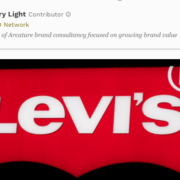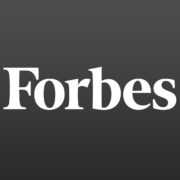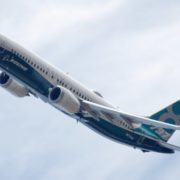Old Is New, Denied Distinctiveness & More: The Latest from Larry Light’s Forbes.com Column
Larry Light sheds light on interesting marketing and branding news in his Forbes column on a weekly basis. Below is a roundup of some of his latest insights. Read them now!
https://www.forbes.com/sites/larrylight/2020/08/31/old-is-new-erewhon-the-whole-earth-catalog-loop-and-blueland/#1a13769571e9″ target=”_blank”>Old Is New: Erewhon, The Whole Earth Catalog, Loop And Blueland
In 1966, a year before the Summer of Love and two years before the original Woodstock, two gurus of the macrobiotic lifestyle, followers of the great George Ohsawa, opened a health food store called Erewhon. Erewhon is meant the title to be understood as the word “nowhere” backward even though the letters “h” and “w” are transposed. It came from the Samuel Butler book about a utopia. One of the fictional Erewhon’s tenets was that everyone was responsible for their own health and wellbeing.
Land Rover And The Case Of Defender’s Denied Distinctiveness
In January of 2016, after 67 years, Jaguar Land Rover (JLR), owned by Indian company Tata, ended production of the iconic and beloved Land Rover Defender four-wheel drive vehicle. The first Defender, aka Land Rover Series, began sales in 1949 post-war Britain. The intended use was for agricultural purposes. The design was similar to the WWII Willy’s Jeep (manufactured by Willys-Overland Motors). Over the course of its 67-year history, Land Rover Series and Defender vehicles reportedly sold just over two million vehicles. As a point of interest, at its 1949 debut, the Land Rover Series was the first four-wheel drive, mass-produced civilian car with doors.
Home Depot, Alexa And The Paradox Of Do-It-Yourself
In a world of meal-kits, parking assist vehicles, wearable heart monitors, voice-recognition devices, connected homes, networked transportation services, farmers’ markets, delivery of practically everything, Bluetooth, and Task Rabbit employees who assemble your IKEA purchases, what does “do-it-yourself” mean?
Nextdoor, Brands And The Need For Neighborhood
Neighborhood is more than a geographic descriptor. Neighborhood is a mindset… an amalgam of attitudes and behaviors. Whether it is Mr. Rogers’ Neighborhood, or the Cheers bar neighborhood is a powerful force. Financial Times once described a New York City, Upper Westside neighborhood toy store that had lasted beyond the demise of KB toys, FAO Schwartz, and Toys R’ Us. The store lasted because their neighbors owned the store and their neighbors worked in the store.
SpaceX, The Pursuit Of Quality And The Law Of The Diagonal
Elon Musk’s SpaceX company was founded in 2002 to revolutionize space transportation, with the ultimate goal of “making humanity multi-planetary.” SpaceX designs, manufactures, and launches the world’s most advanced rockets and spacecraft.





